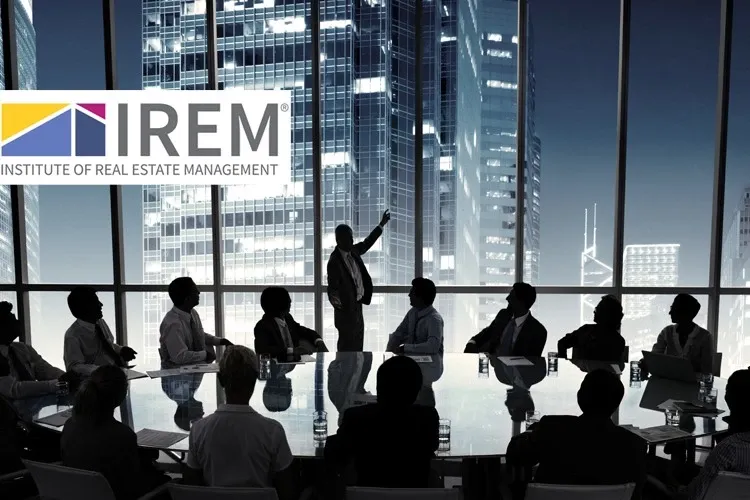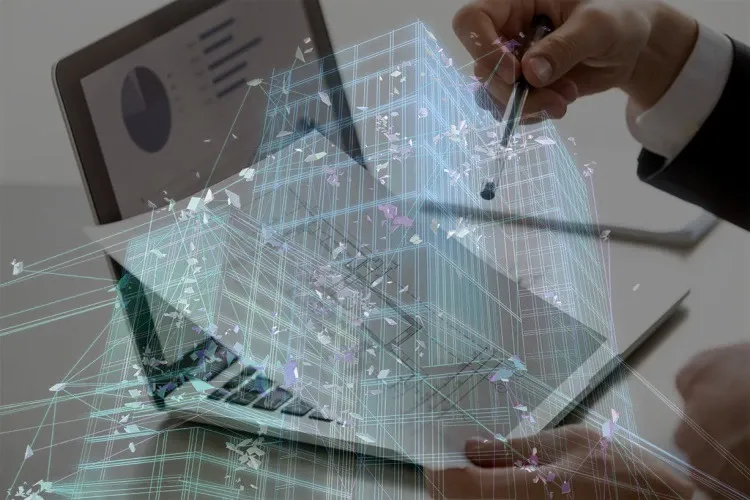Managing Mixed-Use Properties (MXD201)
Learning objectives
Part 1: Introduction
1. What is mixed-use property management?
Mixed-use property management is an exciting and growing profession, and encompasses all components of where people live, work, shop, and play. Managing, leasing, and marketing the mixed-use property can be complex, and the manager who assumes these responsibilities must have specialized knowledge and experience, which is key to maximizing the benefits of all components of a mixed-use development.
In this lesson, you will learn how to:
- Define mixed-use properties
- Understand the history of mixed-use developments
- Recognize why mixed-use properties exist
- Identify various approaches to developing mixed-use properties
- Describe key considerations for managing mixed-use properties
- Determine advantages and challenges of mixed-use developments
- Understand success factors for the mixed-use property manager
- Describe various property management company structures and staffing models
- Explain characteristics of office, retail, and multifamily properties
- List key considerations for various ownership types
- Determine owner goals and objectives
Part 2: Finance
2. Fiduciary responsibility and ethics
One important role of a property management company is to be a fiduciary, with the property manager acting as agent for the owner in handling the financial affairs for a given property. Being a fiduciary places obligation on the agent to report all funds that come into its possession on behalf of a real estate owner and to further report all expenditures. The manner in which this reporting is handled may vary among companies, but timely, accurate reporting is an ethical obligation and in many states a legal requirement.
In this lesson, you will learn how to:
- Recognize ethical accounting and budgeting practices
- Describe the property manager’s financial role
- Differentiate between accounting and budgeting
3. The accounting function
Overseeing and executing accurate and efficient accounting procedures ensures the financial health of the property. A property manager must be able to identify and understand accounting skills needed to meet the owner’s objectives for the property’s performance and to provide a foundation for making day-to-day operating decisions.
In this lesson, you will learn how to:
- Define key accounting terms
- Identify common accounting functions and personnel
- Recognize the role of management with both in-house and outsourced accounting
- Classify cash, full accrual, and modified accounting practices
- Describe the chart of accounts
- Define assets and liabilities
- Describe the general ledger
- Summarize the purchase order process
- Identify the functionalities of accounting software
- Determine daily accounting tasks
4. Cash flow and net operating income (NOI)
Making sound decisions about a property that positively impact the property’s cash flow and stay within the owner’s objectives is a core requirement of the property manager and staff. A property manager must be able to identify the components of cash flow and understand how property managers and staff impact the property’s net operating income, as well as how NOI has a direct impact on property value.
In this lesson, you will learn how to:
- Identify components of the cash flow statement
- Describe capitalization and various valuation techniques
- Calculate the components of the cash flow statement, and apply capitalization techniques to project the market value of a property
5. Budgeting
Establishing and monitoring budgets is the road map to achieving the owner’s goals and objectives for the property. A property manager needs the skills to prepare budgets, forecast, and analyze variances to help meet the owner’s objectives for the property.
In this lesson, you will learn how to:
- Define a budget and describe its purposes
- Characterize the different types of budgets
- Describe the key elements of a budget
- Explain the budgeting cycle and process
- Explain key components of the annual operating budget
- Describe ways to forecast income and expenses
- Analyze budget variances
Part 3: Attracting the right tenants and residents
6. Know the market
Securing and retaining tenants and residents are key factors in the profitability of a property and meeting the owner’s goals and objectives. The property manager must understand the property’s target market and position in the market in order to set appropriate rental rates and occupy the building.
In this lesson, you will learn how to:
- Describe and conduct a market survey, including a market analysis, property analysis, and comparison grid analysis
7. The right tenant mix
In addition to setting rental rates, the market survey and analysis can help determine the right tenant mix for the property. Tenant mix is the synergism created by the right grouping of tenants, retailers, and residents, and is one of the most important components in a mixed-use development.
In this lesson, you will learn how to:
- Identify key considerations for tenant mix and placement in mixed-use properties
8. Leasing
Leasing mixed-use property presents a unique situation for managers. The building is likely to have different rent structures in place for commercial and residential leases, and to have shared expenses for common areas. Rent from residential leases is relatively stable income, with planned increases over multiple years. On the other hand, rental income from commercial tenants will vary based on the specific leases negotiated for each tenant. The manager must be familiar with both commercial and residential leasing nuances to ensure a successful mixed-use development.
In this lesson, you will learn how to:
- Explain commercial lease listing agreements
- Describe components of the commercial lease, including lease types and key clauses
- Recognize the importance of commercial lease renewals
- Apply effective residential leasing tactics
- Explain guidelines related to Fair Housing and the Americans with Disabilities Act
- Describe the process of prospect qualification
- Understand the landlord-tenant law
- Describe components of the residential lease, including key clauses
Part 4: Tenant and resident relations
9. Tenant and resident satisfaction and retention
Rent is a major expense for tenants and residents, and for that, they expect the components of the building to operate properly and efficiently and the property as a whole to be pleasant, comfortable, and secure. The property manager and staff play an essential role in tenant and resident satisfaction and retention. Their dedication to building goodwill every step of the way is essential for the property to thrive.
In this lesson, you will learn how to:
- Explain the importance of retention and orientation
- Establish and execute move-in policies and procedures
- Identify strategies to build goodwill with tenants and residents
- Describe best practices for rent collection policies
- Establish and execute move-out policies and procedures
10. Community relations and reputation management
Community relations are important to the reputation of the mixed-use development. Finding ways to work with the community and show an appreciation of it, can also help with reputation management and marketing of the property and the management company.
In this lesson, you will learn how to:
- Determine strategies for getting involved in the community
- Identify community appreciation events
- Describe best practices for utilizing social media and handling reputation management
Part 5: The physical property
11. Maintenance management
Maintenance management is a critical element to the success of mixed-use developments as it allows for maximizing rents. The various ownership entity agreements and lease agreements, as well as the specifics outlined in the master plan (or other easement or declaration documents) will dictate everything from daily operational issues to handling emergency maintenance issues and will (more importantly) address which ownership entity or condo association is responsible for maintaining what elements. A manager must be able to understand the importance and complexities of developing a sound maintenance and risk management plan for mixed-use properties.
In this lesson, you will learn how to:
- Identify the components of a comprehensive maintenance program
- Describe the differences between the various types of maintenance
12. Maintenance and inspections
Regular inspection ensures a well-kept building and eliminates reactive maintenance. Also, identifying, controlling, and reducing risk protects the owner’s asset, the property’s residents and guests, and the management company. A property manager must inspect all parts of the property on a regular basis to ensure proactive maintenance, reduce risk, and identify risks to be managed.
In this lesson, you will learn how to:
- Explain the purpose and importance of property inspections
- Describe the types and frequency of property inspections based on the types of properties included in the mixed-use development
- Determine the property manager’s role with inspections
- Identify key maintenance management program tools such as checklists and software
- Explain how to effectively use inspection results
- Identify best practices for communicating with commercial tenants
13. Protecting the property
Identifying, controlling, and reducing risk protects the owner’s asset, the property’s tenants and residents, visitors, and the management company. The property manager must inspect the property on a regular basis to identify and manage risks.
In this lesson, you will learn how to:
- Explain the importance of risk management
- Determine strategies for managing specific risks, including safety and security
- Identify considerations for a building’s security program
- Explain the importance of emergency and disaster planning, and identify the components of an effective plan
- Describe key insurance concepts for property managers
14. Components and systems
Before beginning any maintenance plan or repair work on mixed-use properties, one must first ensure that the element being repaired falls under the purview of the ownership entity he or she is representing and that one does not instead need to notify another responsible party. One of the key roles of the manager is to help the various entities and stakeholders of the mixed-use development recognize that they share a common goal to keep the entire property well-maintained, not just the property-specific components that they use the most or consider their responsibility. Understanding the maintenance of major components and systems allows the property manager to effectively manage and maintain them, supervise staff, and oversee contracted work. A property manager must be able to identify key maintenance considerations for the major building mechanicals and systems.
In this lesson, you will learn how to:
- Recognize general guidelines for good property maintenance
- Explain key maintenance issues related to roofs, HVAC systems, plumbing, elevators and escalators, pavement systems, and landscaping in order to effectively maintain the property
15. Working with contractors
Selecting and overseeing the work of contractors helps to control costs and ensures the work is performed to specifications. A property manager must understand when to use contract labor, and how to develop an effective bidding process, including well-written contract specifications.
In this lesson, you will learn how to:
- Determine when to use contractors
- Create detailed job specifications
- Understand the bidding process and how to evaluate bids
- Describe standard components of the maintenance contract
- Identify factors to consider when monitoring a contractor’s work
- Recognize the nuances pertaining to contracts for specific types of maintenance services commonly contracted out on a mixed-use property
16. Sustainability
Market demand, the bottom line, government regulations, and personal voluntary awareness is driving the demand for sustainability. Implementing sustainability measures can have a positive impact on natural resources and the owner’s profit, as well as a marketing impact for potential tenants and residents. A property manager must be able to identify ways to implement conservation techniques to improve sustainability and efficiency while reducing operating expenses.
In this lesson, you will learn how to:
- Describe various sustainability programs
- Analyze and develop energy conservation efforts
- Analyze and develop water conservation efforts
- Explain key components of an effective recycling program
- Educate tenants and residents on the role they play in energy and water conservation
Part 6: The staff
17. Managing and leading the team
An effective property manager is one that understands the various operational and financial dynamics on the asset and creates an environment where all team members are encouraged and held accountable to perform at their highest levels. A property manager must create an intentional, detailed, and measurable strategy for managing and leading the team.
In this lesson, you will learn how to:
- Determine best practices for management, leadership, and emotional intelligence
- Identify intergenerational dynamics related to management
- Determine what motivates employees
18. The life cycle of an employee
Recruiting, hiring, training, and evaluating the right talent will add to the bottom line by decreasing turnover and increasing the quality of work. The property manager must understand the lifecycle of an employee and the related legal considerations throughout the process in order to attract and retain top talent and an effective property team.
In this lesson, you will learn how to:
- Identify and describe key components in the recruitment and hiring process
- Determine strategies for onboarding and training new employees
- Execute the performance management process
- Manage employee retention and turnover
19. Employment law and regulations
Understanding and abiding by employment laws ensures ethical behavior at the property and minimizes potential liability. A manager must identify the legal issues that impact the employee life cycle.
In this lesson, you will learn how to:
- Explain key legal issues related to employment
20. Communication and conflict resolution
Managing employees involves an understanding of individual communication preferences as well as the various styles of conflict resolution. A manager must develop active listening and nonverbal communication skills to break down communication barriers and enable more effective problem solving among employees.
In this lesson, you will learn how to:
- Recognize common communication barriers
- Demonstrate active listening
- Interpret nonverbal behavior
- Compare conflict resolution styles
- Recognize problem-solving strategies
Part 7: The management office
21. Lease administration
Property managers and staff are responsible for establishing and maintaining all records related to tenants and residents of a mixed-use property. Due to the complex, and specific, nature of commercial leases, more lease administration tasks are relevant on the commercial property side.
In this lesson, you will learn how to:
- Develop standard procedures for maintaining lease files
- Identify the importance of the commercial lease abstract and process
- Develop procedures for capturing a commercial lease restrictions summary
22. Real estate taxes and appeals
Real estate taxes represent a major expense. The tenants’ leases need to be carefully summarized or abstracted to correctly bill each tenant for its share of the real estate taxes.
In this lesson, you will learn how to:
- Identify the importance of tax appeals
- Describe the property tax appeals process
- Identify the costs and hazards of an appeal
23. Budget development and revision schedule
The budgeting process must be planned, communicated to everyone involved, and monitored. Each income and expense source and line item in the operating budget must be analyzed to prepare an accurate net operating income (NOI) projection.
In this lesson, you will learn how to:
- Establish procedures for reviewing and revising the budget
24. Billing and expenses
Billing and expenses are a substantial part of the administrative tasks required of the property management team. Accurate and timely billing is necessary to ensure budgets and reports reflect the current financial state of a property.
In this lesson, you will learn how to:
- Determine procedures for operating expense bill backs
- Determine procedures for year-end adjustment
- Explore options for billing tenants
- Explain the importance of the nonbudget/overbudget expense approval form
25. Reports and reporting
Accurate information is the foundation of decision making, and reports to the owner should be comprehensive and accurate. Property managers must be familiar with the type of reports necessary and how to prepare them.
In this lesson, you will learn how to:
- Recognize the importance of reporting to the owner
- Identify and develop narrative and financial reports to gauge progress towards meeting owner goals and objectives
- Describe other administrative tasks necessary to manage the property such as bank reconciliations, check requests, managing inventory, coding invoices, and establishing moving notices














